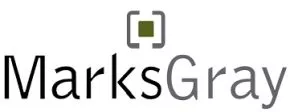- within Intellectual Property topic(s)
- in European Union
- within Intellectual Property topic(s)
- in European Union
- with readers working within the Basic Industries industries
- within Intellectual Property, Media, Telecoms, IT, Entertainment and Technology topic(s)
Recently, photographer Dennis Lee filed suit against the Detroit Lions claiming the NFL team used Lee's high school sports images of quarterback Jared Goff without proper licensing. The photographs in dispute date from 2011 and 2012 and depict Goff playing baseball and basketball at Marin Catholic High School.
According to Lee, those images were licensed to MaxPreps under a non-commercial license, but the Lions later used them on social media in a way that Lee asserts is commercial and unauthorized.
Who is correct? It comes down to the fundamentals of copyright law and the limits of permissible use.
What Rights Does the Photographer Hold?
Lee claims that he owns the copyrights for the three photographs at issue and has registered them with the U.S. Copyright Office. This is vital, because registration is not only a prerequisite to suing for statutory damages under U.S. law, it also creates a public record of ownership.
He further alleges that his agreement with MaxPreps was limited to non-commercial use. Under such a license, the licensee may display the images in editorial or non-promotional contexts, but commercial exploitation (for example, using the images to promote products, teams, or merchandise) usually requires a separate commercial license. He contends that the Detroit Lions never sought or obtained that commercial license.
What Precisely Did the Lions Do, and Why Does It Matter?
Lee's lawsuit claims that the Lions (or someone acting for them) obtained the photos via MaxPreps under the non-commercial license. But then, on March 27, 2025, the team posted the images to their Instagram and X accounts as part of posts celebrating the NCAA Tournament's Sweet 16 and Major League Baseball's Opening Day.
The photographs appeared alongside commentary about sports, players, and teams – content that, according to Lee, functions as promotional material given the purpose of the team's accounts.
Lee asserts that the Lions use social media platforms not just to inform but to market games, merchandise, and players, thus rendering the use commercial in nature. Because the photographs were never credited to him, nor did he receive payment, he claims lost licensing revenue and requests damages as well as an injunction preventing further use.
Understanding the Key Legal Principles at Play
Licensing Terms and Scope. The central dispute turns on the license under which the images were acquired. Non-commercial licenses are common for educational or editorial use. But when use crosses into commercial or promotional territory, licensors typically require a more robust license with compensation and attribution.
Nature of Use: Commercial Versus Non-Commercial. Whether a use is "commercial" is often determined by context: is the image being used to promote, sell, or drive business? In this case, Lee contends that the Lions used the images in a promotional context. If that is true, it may exceed the bounds of a non-commercial license.
Rights of Attribution and Credit. In many licensing agreements, the photographer retains the right to attribution. Failure to credit constitutes a breach of the licensing terms and may support a stronger claim for damages.
Remedies Available. Because Lee registered the works, he can seek statutory damages (instead of only actual damages), and he may also seek injunctive relief to stop future unauthorized use.
Fair Use Defense (Limited). The Lions might argue that their use falls under fair use, which permits the use of copyrighted works without license in certain contexts (commentary, news, criticism). But fair use is never guaranteed, and a court would weigh factors such as the purpose of use, the amount used, and any impact on the potential market. In a case like this, where the use is intertwined with promotional intent, fair use is not a very strong defense.
What Content Users, Creators, and Brands Should Take Away from This Case
- Always read and respect license terms. A license that appears broad may still limit commercial use, attribution, or adaptation.
- Assume social media use is commercial unless clearly editorial. Even if a post seems innocuous, if an account is used to market or promote, that use may be deemed commercial.
- Neglecting attribution or fees can carry real legal risk. Courts often take licensing breaches seriously, especially for registered works.
- Register your copyrights. Without registration, remedies are limited.
- Fair use is not a safe harbor for marketing materials. It is reserved for commentary, scholarship, and criticism – not commercial promotion.
The lawsuit against the Detroit Lions illuminates how easily boundaries can be crossed in the digital age, especially where photography, social media, and promotion intersect. For creators and businesses alike, the case underscores the need for care when using images: the costs of misstep may include litigation, damages, and reputational harm.
The content of this article is intended to provide a general guide to the subject matter. Specialist advice should be sought about your specific circumstances.


